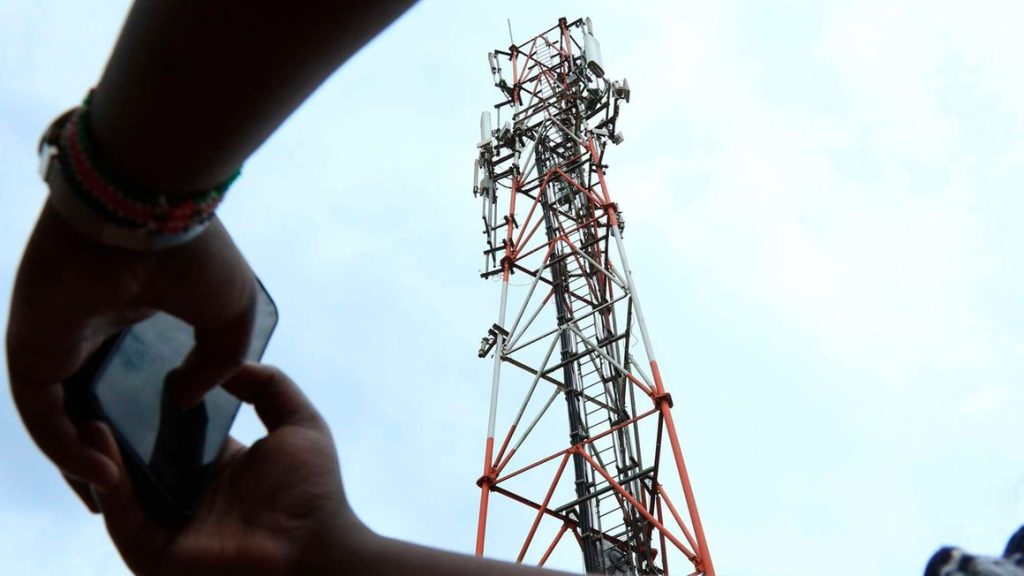Digital technologies hold great promise for improving the lives of people in African nations. These technologies can play a vital role in delivering healthcare services, expanding access to education, and promoting financial inclusion across the continent.
However, there are significant challenges to fully realizing these benefits. Many communities still lack the essential infrastructure needed to connect people, and there are gaps in both technology and financing.
As of 2023, only 83 percent of Sub-Saharan Africa had 3G mobile network coverage, compared to over 95 percent in other regions. Furthermore, less than half of Africa’s population had active mobile broadband subscriptions, trailing behind the Arab states (75 percent) and the Asia-Pacific region (88 percent). This has left a large portion of Africans among the 2.6 billion people worldwide who remained offline in 2023.
China has emerged as a key partner in addressing this digital divide. Many African countries rely on China for technological infrastructure and financial support to drive large-scale digital projects.
A recent study revealed that at least 38 African countries have worked with Chinese companies to develop their domestic fiber-optic networks, data centers, and technical expertise. This partnership has been instrumental in the region’s digital growth. Despite the ongoing digital gap, network coverage in Africa has expanded significantly, with 3G coverage increasing from 22 percent in 2010 to 83 percent in 2023, and mobile broadband subscriptions growing from less than 2 percent to 48 percent in the same period.
However, there are concerns that this foreign-driven digital development could entrench existing dependencies on external partners.
Why African Countries Rely on Foreign Technology and Funding
The global market for information and communication technology (ICT) infrastructure is dominated by a few key players. Companies like Huawei and ZTE from China and Ericsson from Sweden are among the top suppliers of critical components like fiber-optic cables, which are necessary for high-speed internet.
Many African nations lack the financial resources to invest in these technologies independently. Their infrastructure projects rely heavily on foreign funding, including loans and public-private partnerships, which can influence their choice of technology suppliers.
The geographic challenges of Africa, with its vast and often remote regions, also make infrastructure development costly. Private investors are often hesitant to extend services to sparsely populated areas due to low returns. In addition, landlocked countries must rely on their coastal neighbors for access to international fiber-optic connections.
Why African Leaders Opt for Chinese Solutions
It’s often assumed that African leaders choose Chinese technology because it’s the cheapest option, but the reality is more complex. Chinese companies offer comprehensive solutions that include both technology and financing, making them particularly attractive to African governments. For instance, under the “EPC+F” model (Engineer, Procure, Construct + Fund/Finance), Chinese firms like Huawei and ZTE manage the entire project, while Chinese banks provide financial backing. Countries such as Angola, Uganda, and Zambia have benefited from these arrangements.
What’s in it for China?
China’s involvement in Africa aligns with its “go-global” strategy, which encourages Chinese companies to expand internationally. The Chinese government supports these efforts financially, aiming to increase the competitiveness of Chinese products and boost its economy.
In the long term, China seeks to establish its own digital standards globally and foster closer ties with African nations. This includes training African students in Chinese technology and encouraging the adoption of Chinese applications and systems, which may reflect China’s views on issues like data privacy, human rights, and freedom of speech.
China’s broader ambition is to reduce reliance on Western technology and create a more Sino-centric global digital order. Africa’s digital development offers an entry point for this larger goal.
Risks of Over-Reliance on Chinese Technology
While China’s support has accelerated Africa’s digital progress, relying too heavily on a single technology supplier poses risks. African countries may find it difficult and expensive to switch providers, potentially locking them into the Chinese digital ecosystem.
Some researchers and organizations, like Arthur Gwagwa of the Ethics Institute at Utrecht University, have raised concerns that Chinese infrastructure could facilitate espionage or cyber-attacks. Human Rights Watch has also expressed worries about China’s role in enabling authoritarian surveillance, particularly citing allegations that Huawei assisted in spying on political opponents in Uganda and Zambia. Huawei has denied these claims.
The Path Forward
China’s involvement offers African countries a fast track to digital development, but it also creates the risk of long-term dependency. To mitigate this, African nations should diversify their sources of technology and funding and invest in developing their own digital infrastructure.
Interoperability should also be a priority in global forums like the International Telecommunications Union. This would allow African countries to mix and match technological components from different suppliers, fostering competition and avoiding vendor lock-in.
Ultimately, African countries need to work toward building their own technology infrastructure to achieve greater self-reliance and independence in the digital age.



















